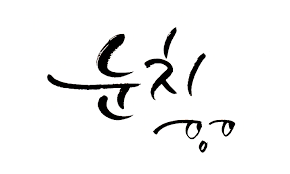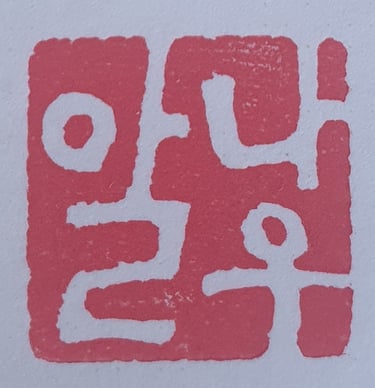Nunchi: the subtle art of social perception
Illustration : https://medium.com/@ransinlove/korean-noonchi-and-its-chinese-equivalent-explained-in-my-way-a06028f91356
"Nunchi" (눈치) is a deeply rooted concept in Korean culture, often translated as "the art of subtle observation" or "the ability to understand others' thoughts and feelings by observing their behaviors and expressions." This term refers to a crucial social skill, akin to emotional intelligence but with unique cultural nuances specific to Korea. Nunchi plays a vital role in daily interactions and social dynamics in South Korea.
Origins and meaning
The word "nunchi" is made up of "nun" (눈), meaning "eye," and "chi" (치), a term used to describe measurement or estimation. Together, they refer to "measuring with the eye" or the ability to quickly gauge a social situation using visual and contextual cues. Nunchi is seen as an essential skill for navigating interpersonal and professional relationships in Korea.
Components of nunchi
Observation: Nunchi requires careful observation of facial expressions, body language, tone of voice, and the overall atmosphere. Koreans are taught from a young age to read these subtle cues and adjust their behavior accordingly.
Active Listening: Listening plays a crucial role in nunchi. Understanding not just the words but the intentions and emotions behind them is key to effective communication.
Adaptability: Nunchi involves the ability to quickly adapt to changing situations. This may mean adjusting one's tone, modifying actions, or reevaluating a situation to better align with social expectations.
Application in daily life
In personal relationships
Nunchi is omnipresent in family and friendly interactions in Korea. Family members use nunchi to maintain harmony and avoid conflicts. For example, a child may adjust their behavior based on their parents’ mood, and friends can understand each other without needing explicit words.
In the workplace
In Korean professional settings, nunchi is essential for navigating hierarchy and power dynamics. Employees often need to interpret non-verbal expectations from their superiors and adjust their behavior accordingly. Nunchi also helps build effective working relationships and maintain a cooperative atmosphere.
In social contexts
Social situations, such as family gatherings, community meetings, and public events, require subtle applications of nunchi. Individuals must quickly assess group dynamics, understand unspoken cues, and adjust their behavior to blend in harmoniously.
Nunchi and Korean cultural values
Nunchi is closely linked to Korean cultural values such as collective harmony (jeong) and social hierarchy (eum). These values emphasize cooperation, respect for elders, and the importance of social integration. Nunchi helps individuals navigate these values by allowing them to perceive and respond to social expectations appropriately.
Comparison to emotional intelligence
Though similar to emotional intelligence, nunchi has distinct differences due to its cultural grounding. Emotional intelligence emphasizes managing personal emotions and understanding others, while nunchi focuses more on contextual perception and quick social adaptation.
Learning and developing nunchi
Nunchi is a skill that develops over time and through experience. Korean children are often trained from an early age to carefully observe their surroundings and respond appropriately. Adults continue to refine their nunchi through social and professional interactions.
Nunchi is an essential social skill in South Korea, allowing individuals to effectively navigate interpersonal and professional relationships. Rooted in Korean cultural values, nunchi emphasizes subtle observation, active listening, and adaptability. Understanding and mastering nunchi can not only improve social interactions in Korea but also offer valuable insights into communication and human relationships from a broader cultural perspective.
I suggest reading The Power of Nunchi by Euny Hong, which sheds light on what nunchi is.
https://www.amazon.com/Power-Nunchi-Korean-Happiness-Success/dp/0143134469



